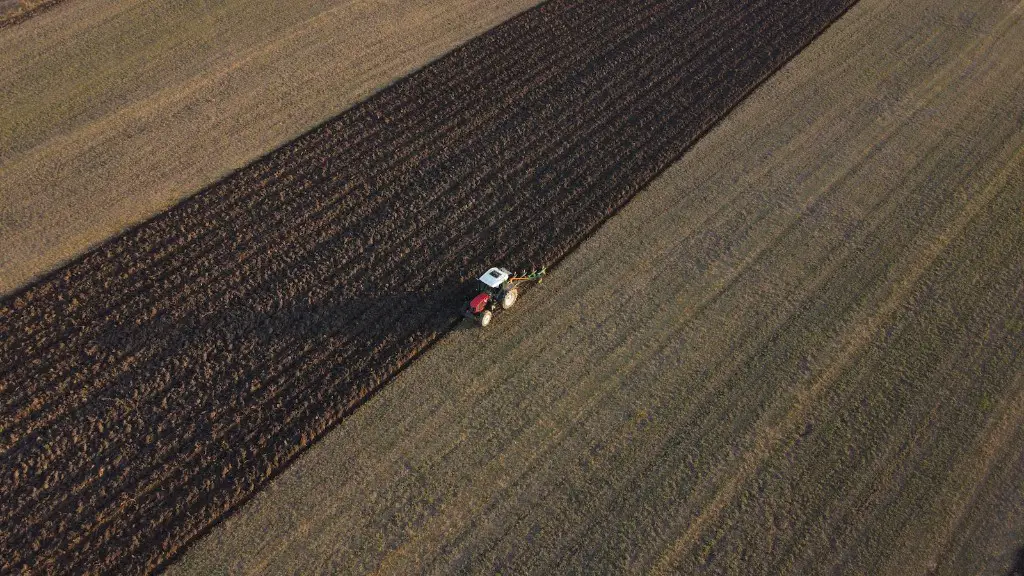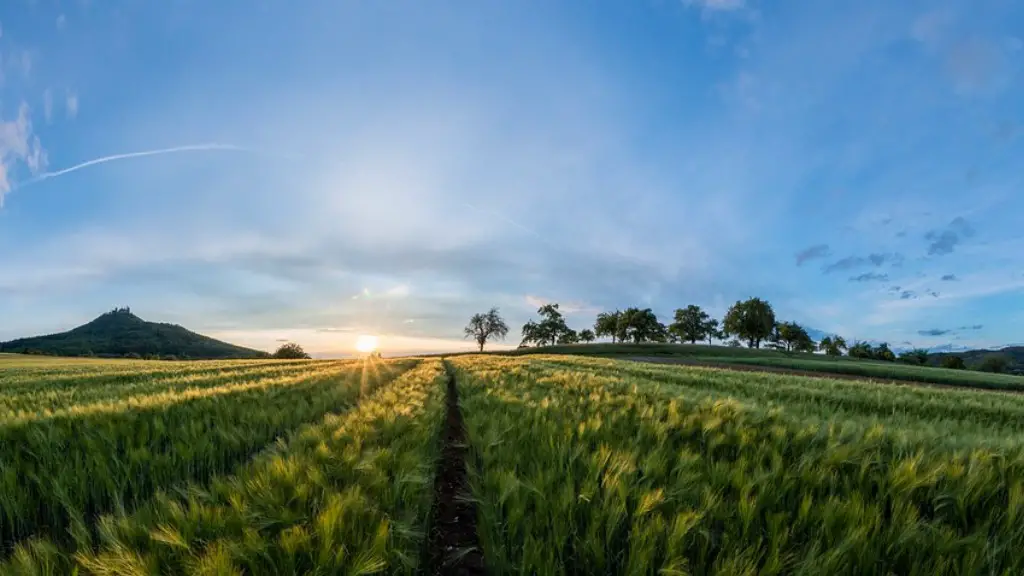Agriculture plays a crucial role in the growth of a nation’s economy. It provides food, employment, livelihood and income for millions of people living in rural areas. Some of the advantages are availability of raw materials and inexpensive raw materials, production of food and other agricultural products, increased productivity with the use of new technologies and improved agricultural practices. Contrarily, there are some dangers associated with agriculture, such as environmental concerns, including water pollution, soil erosion, overuse of fertilizers and chemicals, and land degradation. Despite these challenges, the importance of agriculture cannot be denied.
Agriculture is the main source of the world’s food supply. It is the basis for the production of most of the food that we eat, whether it is wheat, corn, rice, fruits, livestock, or dairy products. The importance of agriculture to our daily lives lies in the fact that it produces food that we consume on a daily basis, as well as providing us with materials and products such as fiber, fuel, and medicines.
Agriculture is necessary for economic development in many countries. For instance, in developing countries, agriculture is the main source of employment and income. The agricultural sector generates new income, generates market activity, and provides a platform for value creation in the economy, helping to create jobs, promote growth, and improve living standards for many people.
Agriculture also contributes to economic stability. By providing food, it helps to keep prices stable and reduces inflationary pressures. This helps to protect the economy from short-term volatility, as well as aiding in long-term economic growth.
Agriculture also helps to ensure a country’s food security. The production of food protects vulnerable people from hunger and malnutrition, and ensures a dependable source of food in times of need.
Agriculture is essential for the preservation of biodiversity. The world’s natural resources rely on agricultural production to sustain them. By doing so, it helps to protect wildlife and wild landscapes, providing crucial habitat for plants and animals.
Overall, agriculture is essential for the well-being of people, both domestically and internationally. It provides an abundance of food, which helps to promote health, increase the standard of living, and promote economic growth. Additionally, it is important in preserving biodiversity, providing a secure source of food, and contributing to economic development. All these things make the importance of agriculture indisputable.
Dependence on Agriculture
Agriculture is a major source of employment and livelihood for millions of people around the world. It is a key driver of rural economies, providing both employment and food security for people in rural areas, who often have limited access to other economic opportunities.
Agriculture is also a major source of export earnings for many countries. Developing countries are particularly dependent on the agricultural sector for their export earnings, as it is typically one of the major contributors to their gross domestic product (GDP) and total export earnings.
Agriculture provides both direct and indirect economic benefits, such as market access for farmers, the availability of affordable food for consumers, employment for agro-processing industries, and the improvement of infrastructure and transportation capabilities in rural areas.
The importance of agricultural trade can be seen in the fact that it accounts for around one-third of global trade. Thus, agricultural trade is essential for economic development, poverty reduction, and food security.
Furthermore, agriculture has been a major source of investment for many countries. It has been used to fund infrastructure projects, create jobs, and stimulate economic growth. Moreover, agricultural investment has been a major factor in reducing poverty in some regions, such as sub-Saharan Africa.
Agricultural Sustainability
Agriculture is essential to maintain the sustainability of the planet. It is the key to sustaining the ecosystems that provide many of the resources we rely on. For example, agriculture is essential for maintaining soil fertility, preserving water resources, and enhancing biodiversity.
For sustainable agricultural production to occur, it is necessary to use best practice to preserve and conserve soil, water, and other natural resources. This includes reducing nutrient and pesticide runoff, conserving water resources, and improving land management practices.
Furthermore, sustainable agriculture enhances food security by ensuring that the food supply is adequate, nutritious, and safe for consumption. Additionally, sustainable agriculture can help to reduce the amount of energy and resources used in the production of food.
Therefore, sustainable agriculture is essential for maintaining a healthy environment and for providing for our basic human needs. By embracing sustainable agricultural practices, we can help to ensure that the environment is healthy and that people have access to adequate and nutritious food.
Agricultural Technology
Agricultural technology plays an important role in improving agricultural production, efficiency, and sustainability. The use of new technologies and improved agricultural practices helps to reduce costs, increase yields, and protect the environment.
Technologies such as genetic engineering, computer modeling, and precision agriculture are all powerful tools for increasing crop yields and efficiency, minimizing soil erosion and nutrient losses, and conserving water resources. Additionally, the use of digital technologies, such as smart irrigation systems, can help to reduce water usage, conserve energy, and increase crop yields.
Furthermore, the use of sustainable agricultural technologies can help to improve agricultural production and reduce environmental damage. This includes such things as organic agriculture, agroforestry, soil management, and integrated pest management.
Overall, agricultural technology helps to improve productivity, reduce costs, and protect the environment. By embracing and utilizing the latest technologies and practices, we can help to ensure a secure and safe food supply while protecting the environment.
Conclusion
Agriculture is an essential part of human life and it has played a crucial role in the world’s economic, social, and cultural development. It is a major source of employment and income for millions of people living in rural areas, a key driver of economic development, and a major contributor to food security, biodiversity conservation, and global trade.
Furthermore, agricultural technology supports the sustainability of agricultural production by improving efficiency, reducing costs, and minimizing environmental impacts. Thus, the importance of agriculture to our daily lives is undeniable and its role in ensuring sustainable development is at the core of achieving global food and water security.





